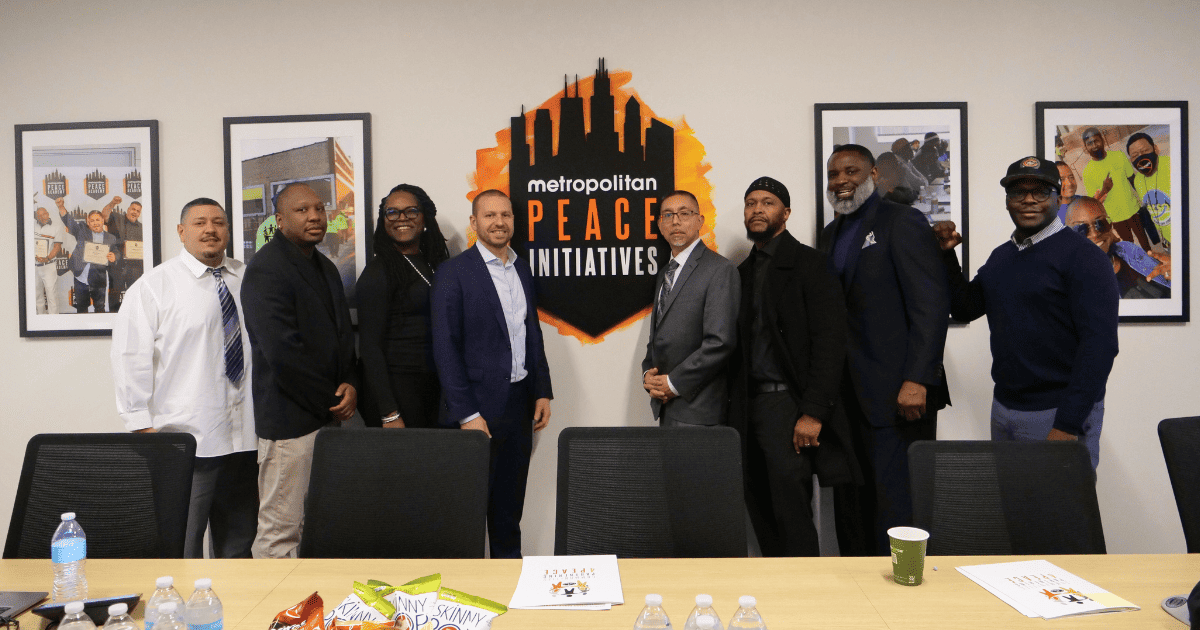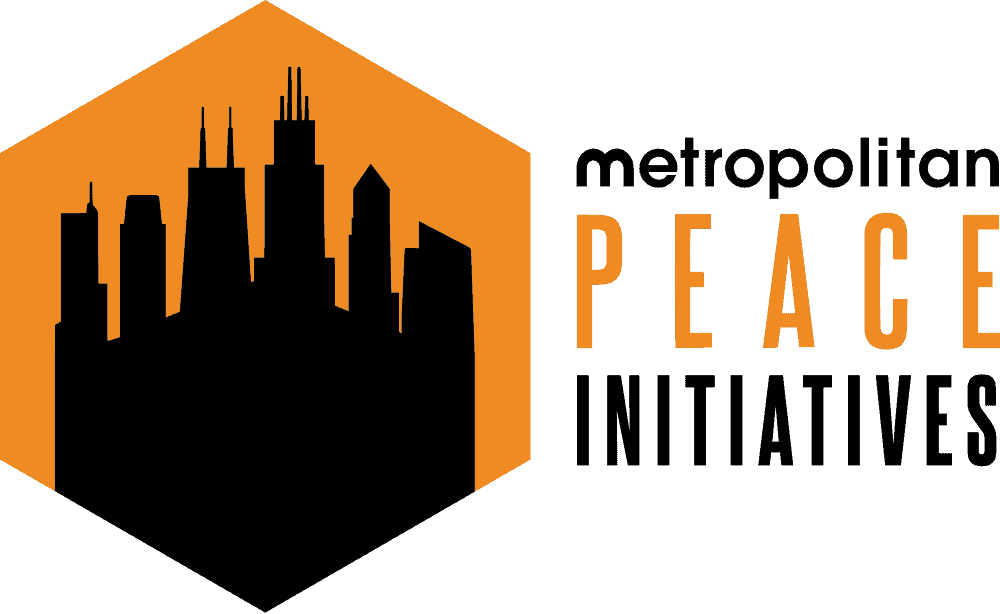DOJ Visits Metropolitan Peace Academy, Looks to Future of Community Violence Intervention Work

The United States Department of Justice (DOJ) made an early morning site visit to the Metropolitan Peace Academy (MPA) Training & Wellness Center in Pilsen on Friday, March 15, 2024. The purpose of the meeting and subsequent tour was to give an overview of the Academy’s services, its commitment to reducing gun violence in Chicago, and its continued efforts in professionalizing the field of community violence intervention (CVI).
DOJ Senior Advisor for CVI Eddie Bocanegra and Acting Principal Deputy Assistant Attorney General Brent Cohen sat in on the meeting as they got the full scope of how the Academy is operating. Presentations from Chief Training Officer Dr. Vanessa Perry-DeReef, Chief Policy Officer Kanu Iheukumere, Director of Field Instruction Steven Perkins, Associate Director of Crisis Prevention & Response Unit (CPRU) Rodney Phillips, Senior Field Manager Jesus Salazar, and Senior Field Manager of Field Operations Billy Deal discussed how the MPA is taking a hands-on approach to empowering individuals and communities, in hopes of healing the neighborhoods most at-risk for gun violence.
“I get a chance to travel quite a bit across the country — by far this is perhaps one of the best models that we’ve seen so far. There’s also a huge appetite and demand for this kind of work,” Bocanegra said following the presentation.
Cohen added, “It’s about professionalizing, but it’s also about investing in the capacity, leadership, and wellness of the individuals who are doing life-saving work, and doing it in spite of their own trauma that may surface. […] I have an appreciation for the work that’s happening right here in Chicago and an appreciation for you all having the forethought and the insight to say, ‘How do we invest in these individuals?’”
The MPA, as part of the Metropolitan Peace Initiatives (MPI), serves as the training grounds for street outreach workers, case managers, victim advocates, and trauma recovery specialists. The facility also provides community training for Chicago residents and police officers.
The new site officially opened in January 2024 after holding previous trainings at various sites across the city for six years.
“I’ve fallen in love with [the Academy]. I haven’t left,” said Salazar, who’s had the unique perspective of seeing the program grow from its inception. Formerly incarcerated, Salazar graduated from the MPA’s inaugural Outreach cohort in 2018, along with 24 individuals serving eight Communities Partnering 4 Peace (CP4P) organizations. Today, the MPA has grown to 17 Outreach cohorts, seven Case Management cohorts, and its first-ever Victims Services cohort. (CP4P has since spread to 13 organizations across 28 neighborhoods in Chicago.)
“I was one of those individuals who was fresh out the county and I didn’t know what to do. A mentor brought me to this work, so I want to continue that,” Salazar said. “I want to keep mentoring individuals and showing them positive outcomes, showing them different paths versus being stagnant in the neighborhood.”
“A lot of us get lost in the neighborhood, unfortunately. I want to make sure that I’m bringing people with me, that I’m pulling them out the fire.”
In detailing their journeys, Deal and Phillips both echoed Salazar’s appreciation for the MPA, stating that the program encouraged them to reach higher heights than they imagined. Deal most recently earned his bachelor’s degree in urban community studies, while Phillips graduated from the inaugural cohort of the University of Chicago Crime Lab’s Community Violence Intervention Leadership Academy (CVILA).
“The Academy inspired me to go farther than just wanting to be an outreach worker. It gave me the confidence to grow into other roles,” said Phillips, who also pointed to Bocanegra as a prime example of where CVI can take an individual. Years ago, the pair worked alongside each other at CeaseFire, a historic program that laid much of the foundation for today’s CVI work.
Looking ahead, MPI and other CVI organizations are hyper-focused on expanding programming through a plan entitled “Scaling Community Violence Intervention for a Safer Chicago” or “SC2.” Announced in early February, the initiative is expected to roll out over the next decade with coordinated efforts from community-based and citywide stakeholders as well as city, county and state governments.
Over the next five years, CVI leaders and professionals hope to serve at least half of the estimated 20,000 Chicagoans at highest risk of shooting or being shot, while reducing shootings and homicides by 50 percent. The ten-year goal is to serve 75 percent, while reducing shootings and homicides by 75 percent.

